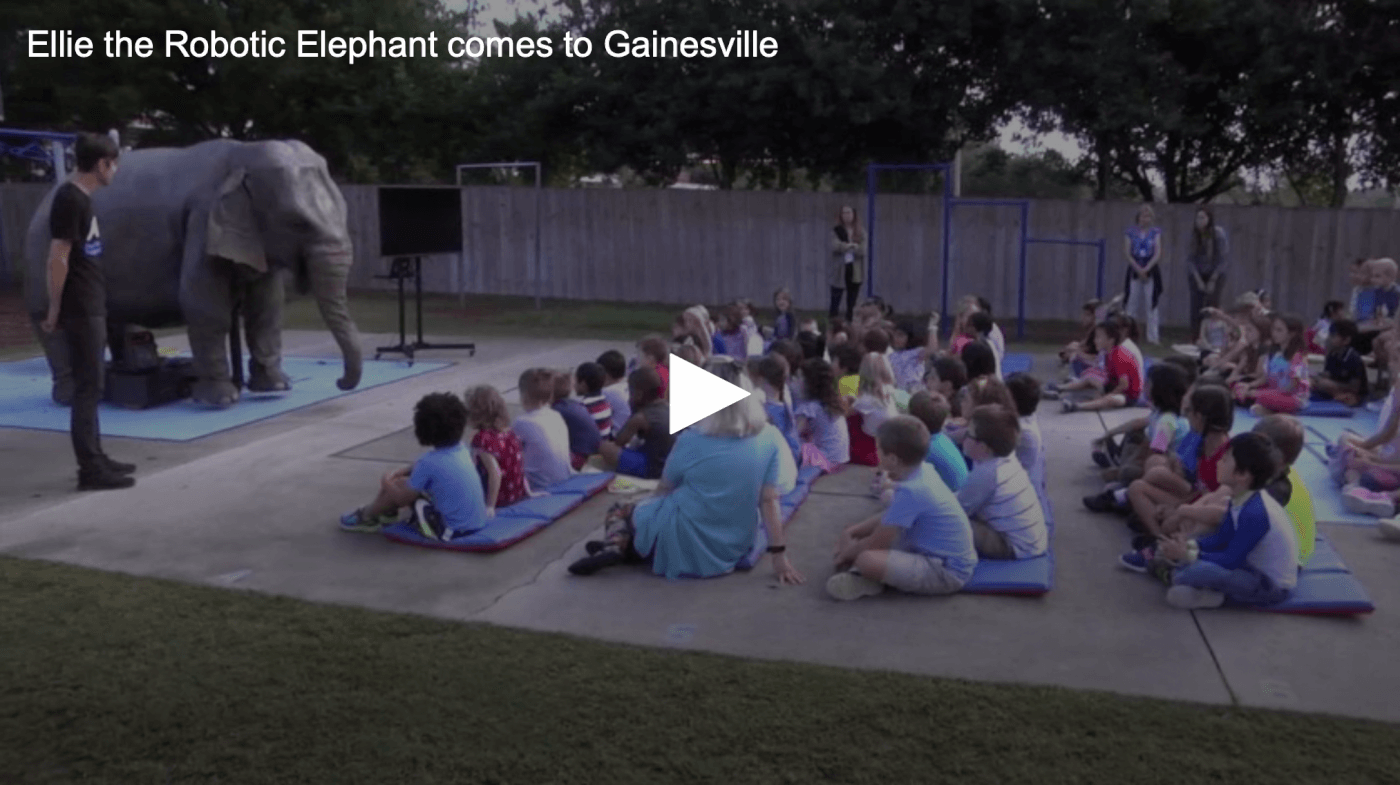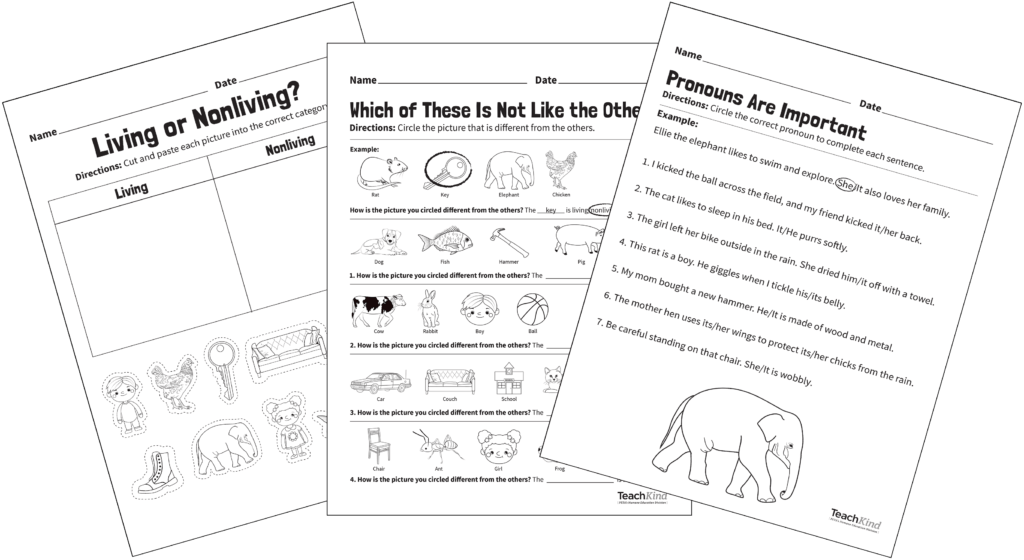TeachKind Wants You to Invite This Cow and Elephant to Your School
Carly and Ellie are ambassadors for all animals—and they’ll inspire your students to speak up for animals, too!
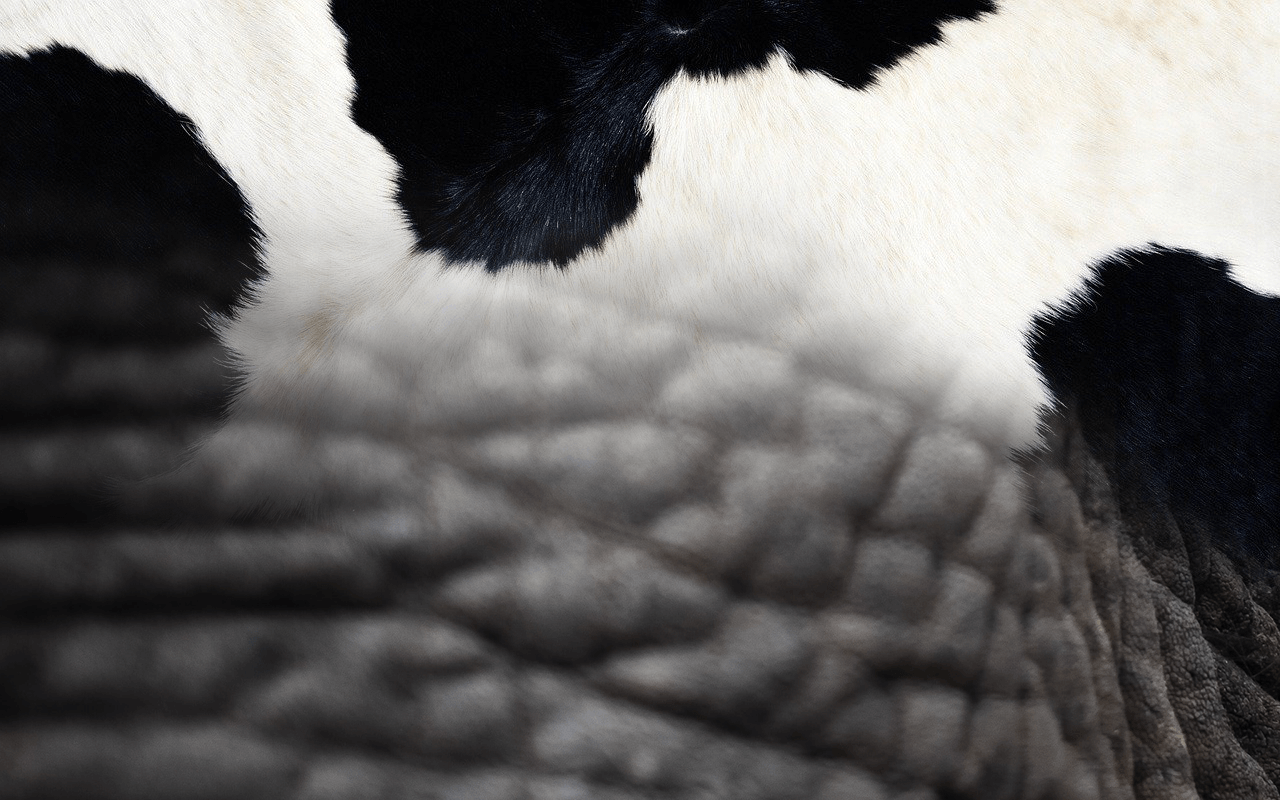
Meet Carly and Ellie!
These life-size mechanical animals travel the country visiting elementary schools and teaching kids about empathy for all. Their lifelike movements and mannerisms even make many children ask, “Are they real?” But the real magic happens when they start talking—and educators watch as Carly and Ellie captivate students with their inspiring stories.
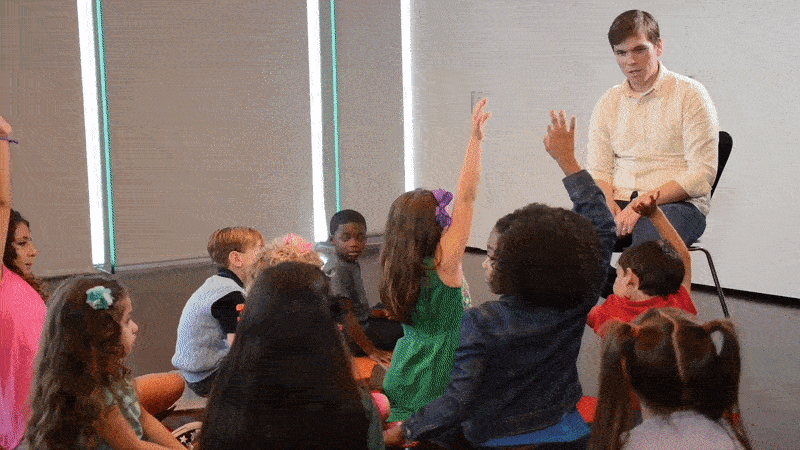
Ellie and Carly don’t like to brag, but they’re kind of a big deal: They’ve toured all over the country and visited hundreds of elementary schools, YMCAs, and summer camps in every contiguous state, bringing their message of compassion to over 130,000 students.
Ellie's Story
Ellie is a recently freed “elephant” who moves her head and wiggles her ears as she shares her story about being rescued from the circus. Then she talks to students about the importance of having empathy for all sensitive living beings, both large and small.
Ellie’s mission to end speciesism includes her explanation that all animals have needs and wants—just like humans—and that we should refer to them using the personal pronouns “he” and “she” rather than “it,” because animals are sentient individuals who deserve our respect and consideration—they’re not inanimate objects. Ellie speaks up for all animals and encourages students to do the same.
Although Ellie carries an important message, she offers a fun and engaging experience for students as she giggles along with them while emphasizing how similar all animals are—even though humans don’t have fur, fins, or feathers! At the end of her interactive presentation, she and the accompanying PETA staff ask thought-provoking questions that strengthen students’ empathy and promote kindness—because after all, empathy is a muscle that children must exercise often in order to strengthen.
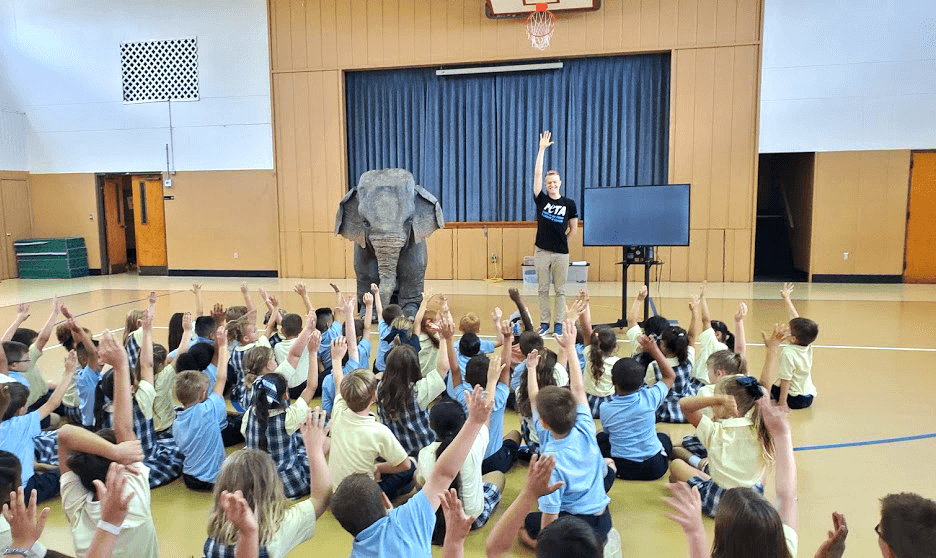
Are You Teaching Virtually?
Your students can experience Ellie’s presentation from home with this interactive video:
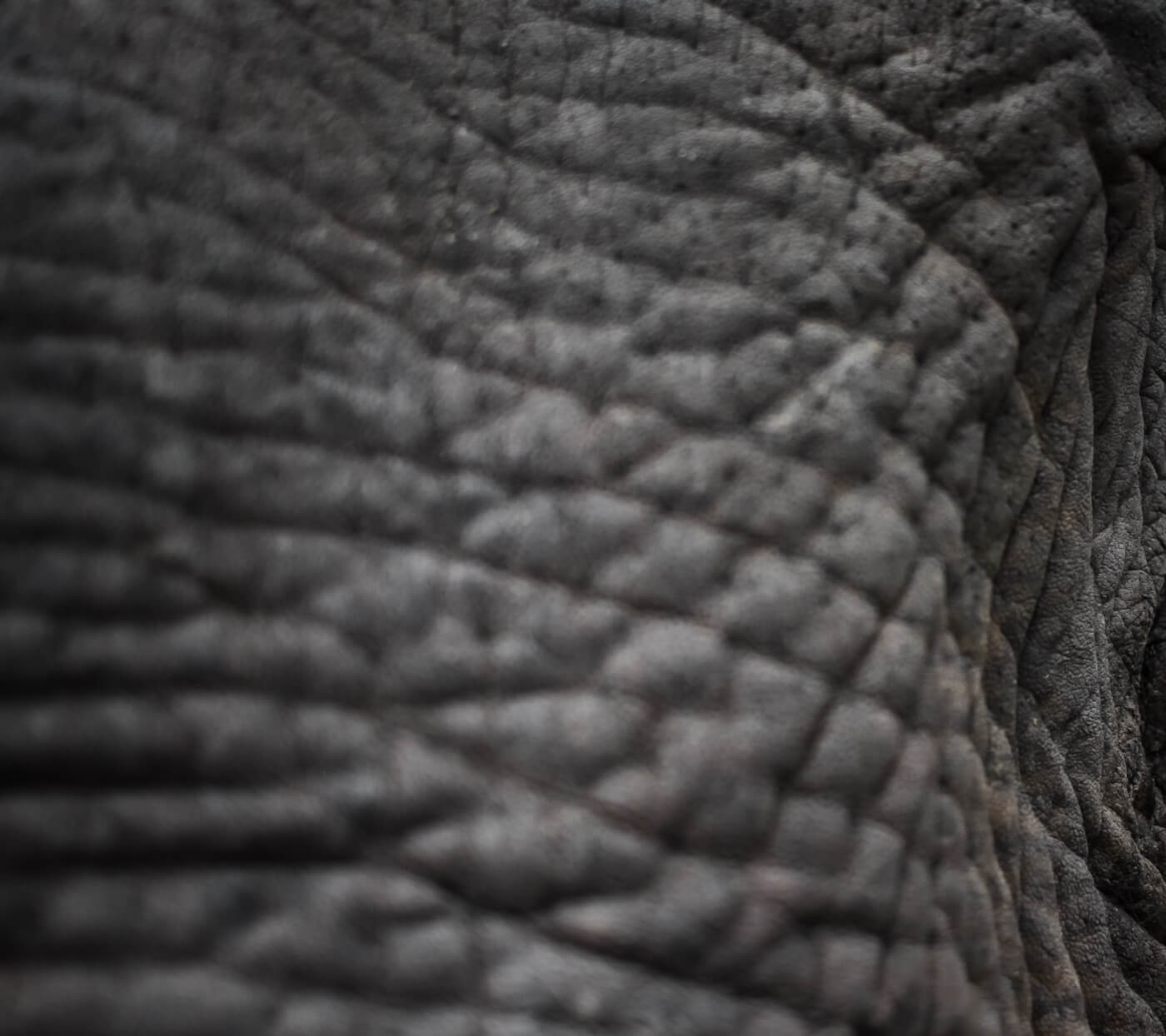
Carly's Story
Carly is our animatronic cow who shares a message of empathy for all while helping students learn about the fascinating lives of cows! Through her 30-minute presentation, she highlights the importance of treating everyone with kindness and respect—no matter our differences.
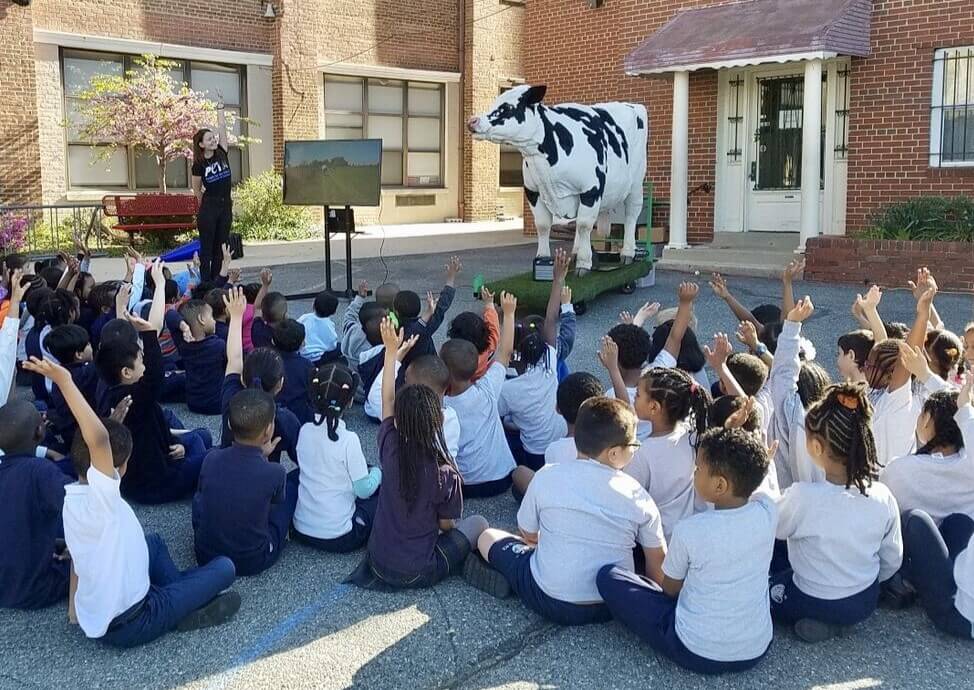
In an engaging and age-appropriate manner, Carly speaks about how all female mammals share a common trait: the ability to make milk to nourish their young. Beyond going over similarities between cows and humans, she reminds students that all animals are individuals with thoughts and feelings and are the same in all the ways that matter most.
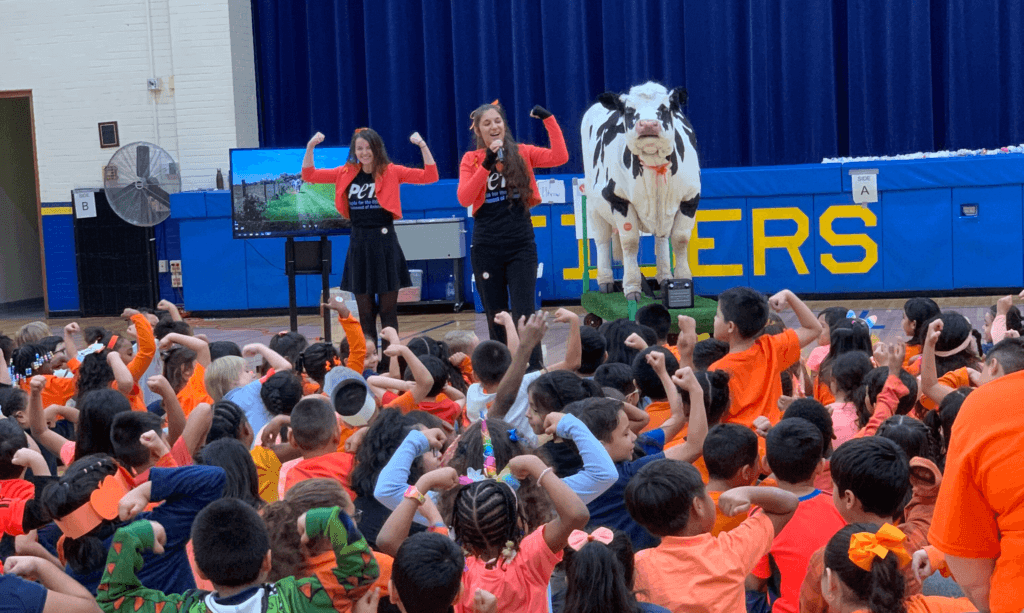
Did you know that cows can smell something up to five miles away? This is just one of the fun facts that Carly shares while shedding light on the inspiring work of animal sanctuaries and exploring the ways humans and other animals are more alike than different—driving home the theme that it’s never OK to bully anyone.
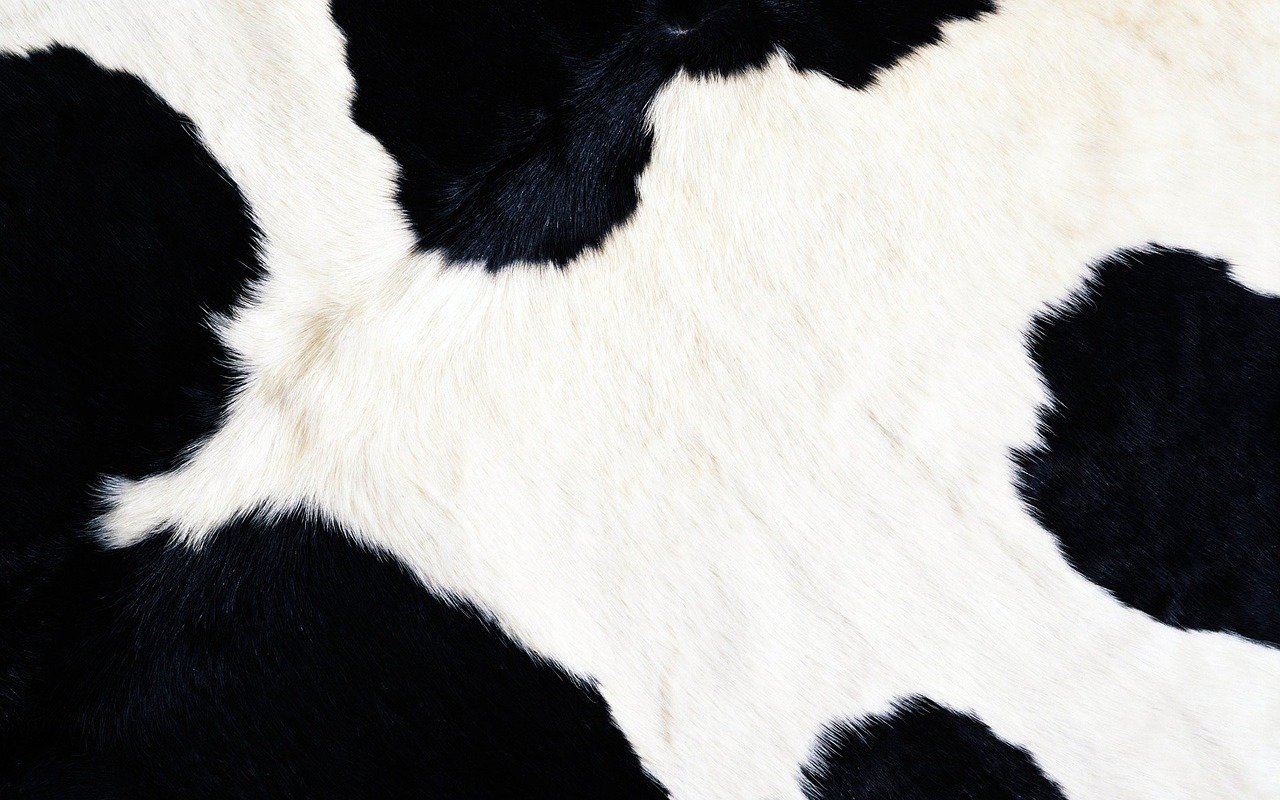
As schools around the country face an epidemic of bullying, it’s essential that we teach students to have empathy and respect for all living, feeling beings—regardless of species. Students are spellbound watching Carly and Ellie speak and move, as they soak up information that helps them become more conscious, compassionate, and thoughtful citizens.
Complete with key vocabulary, higher-order thinking questions, and follow-up lessons, Carly’s and Ellie’s presentations include touching, age-appropriate anecdotes of ways humans and other animals are more alike than they are different. Their stories drive home the theme that bullying is never OK—and they can help schools meet character education mandates in your state.

As an educator, you have a chance to teach your students that all animals—rats, pigs, dogs, and children alike—feel pain, happiness, and fear and want to live. Teaching empathy and compassion for animals not only helps animals but also lessens the likelihood that kids will be cruel to other kids (or to other adults when they grow up). We know, for example, that many violent offenders, including many serial killers, started out harming animals before moving on to humans.

